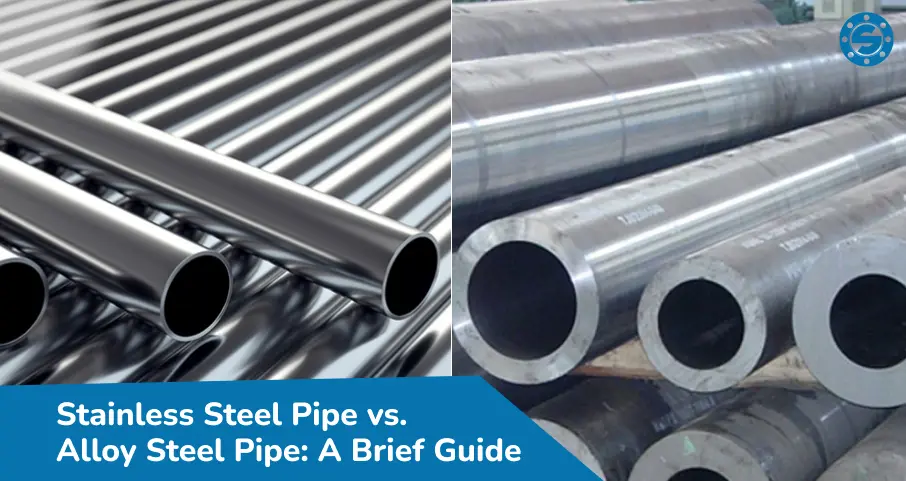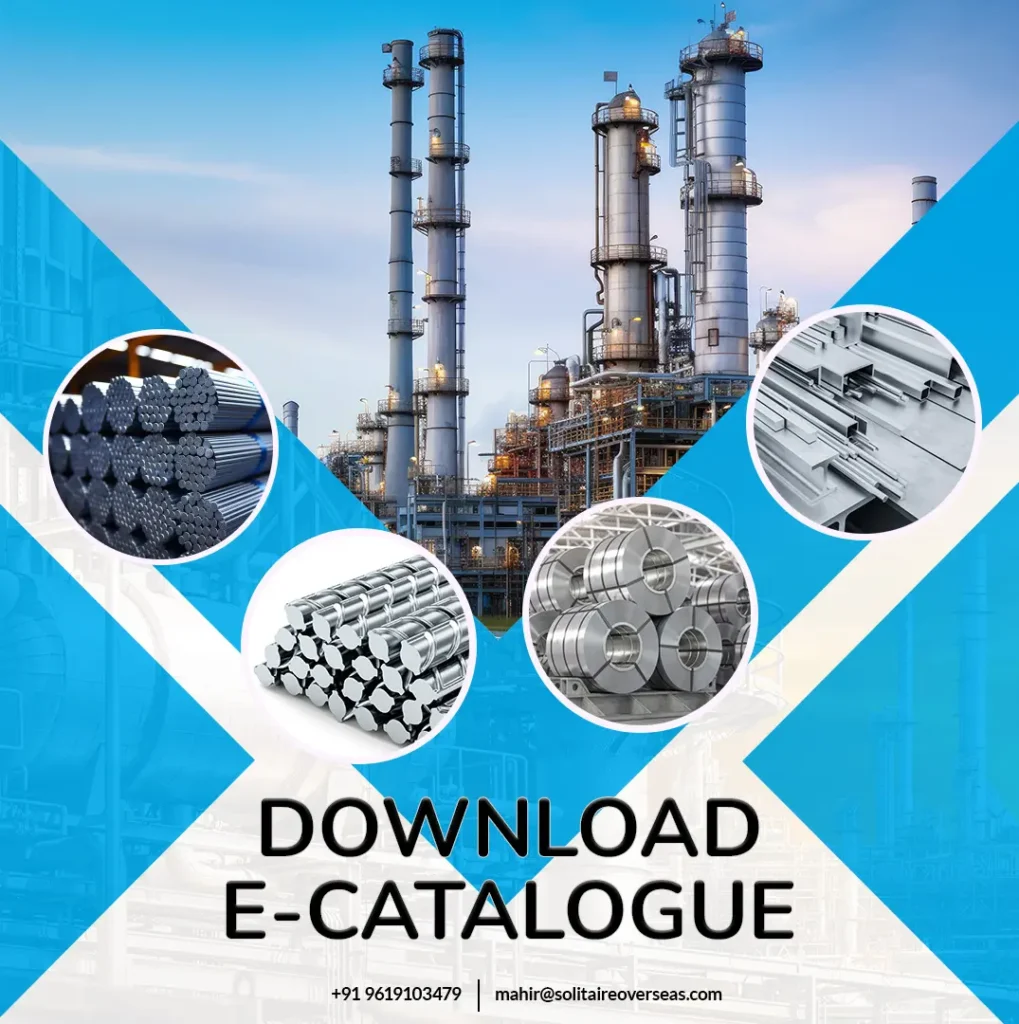Stainless Steel Pipe vs. Alloy Steel Pipe: A Brief Guide

Since the modern age began, metal pipes have been integral to various industries. Early on, materials like copper and iron were used, but they faced challenges such as heavyweight and rusting. These issues led to the deterioration of metal components in machinery and systems, especially in piping, where rusted and corroded pipes caused significant problems.
The introduction of stainless steel pipes marked a major advancement. Stainless steel offers numerous benefits over traditional materials. It is highly resistant to rust and corrosion, making it a durable choice for many applications. Its strength and lightweight properties make it an excellent alternative to heavier and less resilient materials like iron and copper.
If you need pipes that can endure high temperatures and pressures, alloy steel pipes are an ideal choice. Made from a blend of steel and alloying elements such as chromium, manganese, and nickel, these pipes are designed for strength and toughness. Alloying elements enhance their resistance to corrosion and improve their performance in extreme conditions. This guide will provide you with a comprehensive overview of alloy steel pipes, highlighting their key features and advantages.
What Are Stainless Steel Pipe?
Press fittings are components made from alloy stainless steel designed to simplify the process of joining pipes. They offer a range of advantages, including exceptional durability and resistance to corrosion. These fittings are built to handle both high temperatures and cryogenic conditions, making them suitable for diverse applications.
One of the key benefits of press fittings is their ease of installation. Unlike traditional methods that involve threading, welding, or heat joining, press fittings use a simple pressing mechanism to create a secure connection. This not only speeds up the installation process but also reduces labor costs and enhances safety by eliminating the need for open flames or heat sources.
At Solitaire Steel, each product undergoes rigorous testing to ensure quality and reliability. Their press fittings are known for being cost-effective and flexible, catering to a variety of industrial needs. With their natural advantages, such as heat tolerance and corrosion resistance, Solitaire Steel has established itself as a leading manufacturer of stainless steel pipes and fittings, delivering products that meet high standards of performance and durability.
What Are Alloy Steel Pipes?
Alloy steel pipes are crafted from steel that has been alloyed with additional elements to enhance its properties. Unlike standard carbon steel, alloy steel includes elements such as Nickel, Manganese, Silicon, and Chromium, which are added in specific proportions to achieve desired characteristics.
These alloying elements improve the mechanical properties of the steel, such as its strength, hardness, and resistance to corrosion. For example, Chromium can boost oxidation resistance and improve strength at high temperatures, while Nickel can enhance toughness and resistance to impact.
Available in various grades, alloy steel pipes are versatile and can be used in a range of applications across different industries. Their unique composition makes them suitable for high-pressure and high-temperature environments, as well as for use in corrosive or abrasive conditions. This adaptability and enhanced performance make alloy steel pipes a popular choice for critical infrastructure and demanding applications.
Why Choose Stainless Steel Pipes?
Stainless steel pipes are renowned for their exceptional corrosion resistance, thanks to a passive oxide layer that forms on their surface. This layer acts as a protective shield, especially when the steel contains higher levels of chromium and molybdenum. This property makes stainless steel ideal for applications where durability and resistance to harsh environments are crucial.
Advantages of Press Fittings
Press fittings offer a fast and cost-effective alternative to traditional methods like welding or soldering. Installation is quicker, reducing labor and training needs. They also provide secure connections that match the strength of welded joints when installed properly. Press fittings are particularly useful for large-scale projects and can be applied even in wet conditions, minimizing downtime and maintenance interruptions.
Efficient and Reliable
Stainless steel press fittings and tubes from Solitaire Steel are designed for ease of use and reliability. Their superior performance in both commercial and industrial settings ensures quick repairs and long-lasting functionality. With Solitaire Steel, finding the right stainless fitting for your needs is straightforward and efficient.
Types of Alloy Steel Pipes
Alloy steel pipes come in two main types: seamless and welded. Seamless pipes are created by extruding a solid steel billet through a die, resulting in a pipe with no seams. This method makes seamless pipes stronger and ideal for high-pressure applications. In contrast, welded pipes are formed by joining two or more steel pieces together through welding. While welded pipes are generally more affordable and easier to produce in bulk, they are not as strong as seamless pipes and are better suited for lower pressure uses.
Applications of Alloy Steel Pipes
Alloy steel pipes are highly versatile and used in a variety of demanding industries. They are essential in the oil and gas sector for drilling and transporting oil and gas. These pipes also play a crucial role in chemical processing, power generation, and aerospace applications. Common uses include heat exchangers, boilers, and superheater tubes, where high temperature and pressure resistance are required.
Grades of Alloy Steel Pipes
Alloy steel pipes are highly versatile and used in a variety of demanding industries. They are essential in the oil and gas sector for drilling and transporting oil and gas. These pipes also play a crucial role in chemical processing, power generation, and aerospace applications. Common uses include heat exchangers, boilers, and superheater tubes, where high temperature and pressure resistance are required.
Maintenance of Alloy Steel Pipes
Summary
Stainless steel pipes offer excellent corrosion resistance and durability, ideal for various applications. Alloy steel pipes, with added elements like chromium and molybdenum, provide enhanced strength and heat resistance, making them suitable for high-temperature and high-pressure environments. Both types offer unique benefits depending on the specific application needs.


